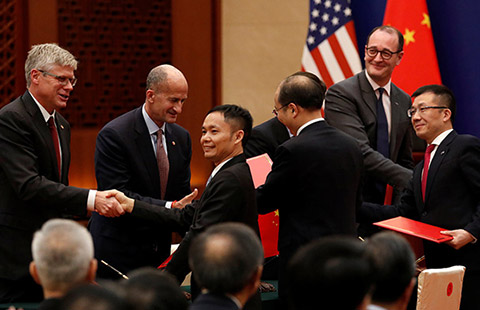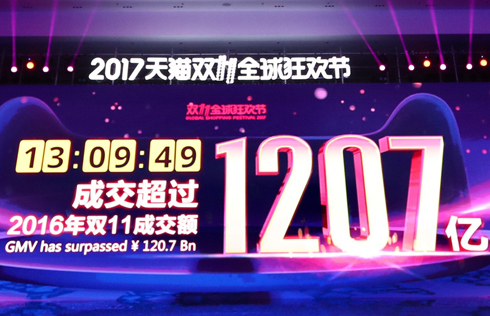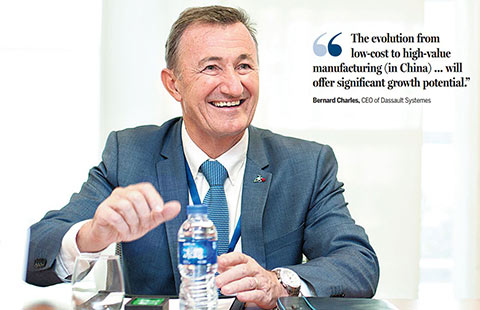Credit growth slows down in Oct
Curbs on shadow lending crimp demand for new loans in country
The nation's new loans and the broad measure of money supply or M2 fell to a record-low in October as lenders tightened mortgage lending and corporates stayed away from bank loans, amid an overall clampdown on shadow lending activities.
The country's year-on-year M2 growth declined to 8.8 percent from 9.2 percent in September, according to data released by the central bank on Monday. It was the sixth straight month that the M2, the broad measure of money supply that covers cash in circulation, registered a single-digit growth rate, which is far from the annual target of 13 percent.
New yuan-denominated lending in October hit the lowest level since November 2016, recording 663.2 billion yuan ($99.9 billion), sharply down from 1.27 trillion yuan in September, official data showed.
The newly added total social financing, a broader measure of new credit in the economy, was 1.04 trillion yuan last month, down from 1.82 trillion yuan in September and 1.48 trillion yuan in August.
Weaker demand for bank lending with tightened regulation on "shadow banking" business was the main reason for the drops, said Li Qilin, chief macro researcher with Lianxun Securities. In the meantime, however, direct financing, in terms of stocks and bonds, has shown obvious growth.
"A faster-than-expected loan issuance in the first three quarters has taken up a large part of commercial banks' total credit quota this year, leaving very limited credit growth in the fourth quarter, which may lead to stressed market liquidity," said Xu Jing, a researcher with global ratings agency Moody's Investor's Service.
By Monday, the overnight Shanghai Interbank Offered Rate (Shibor), which measures the cost at which banks lend to one another, surged by 7 basis points to 2.787 percent, while the three-month Shibor climbed for 25 consecutive days to 4.5155 percent, a record high since July 4.
A tough tone from People's Bank of China Governor Zhou Xiaochuan, saying the future's financial regulation targets will focus on preventing systemic financial crisis by controlling the "master valve" of money supply and credit, through deleveraging and squeezing asset price bubbles, was recently released on the bank's website.
It means the monetary policy is unlikely to ease in the short term, analysts said.
Wang Tao, chief economist with UBS Securities, said that in order to control financial risks, the regulation is likely to further tightening in the future, which may continue to tame shadow-bank lending.
The broad measure of credit growth, or the total financial financing covering local government bonds, may decrease to 13 percent in 2018 from more than 14 percent this year, according to Wang.
"Tighter management of local government debt is expected to slow down investment in infrastructure construction, which may help stabilize the debt-to-GDP ratio when the economic growth rate can keep above 6 percent in the 2018-2020 period," she said.

























